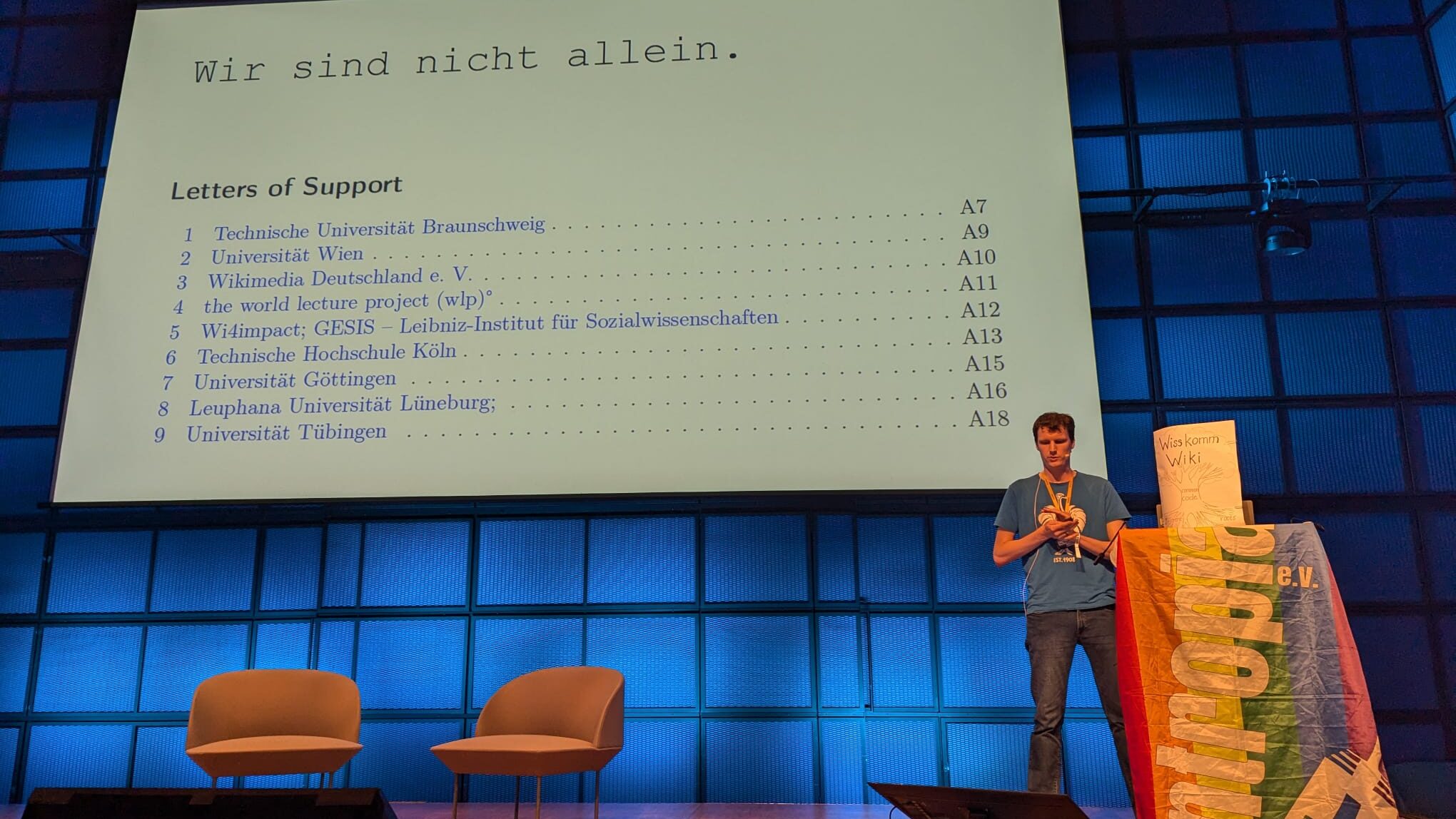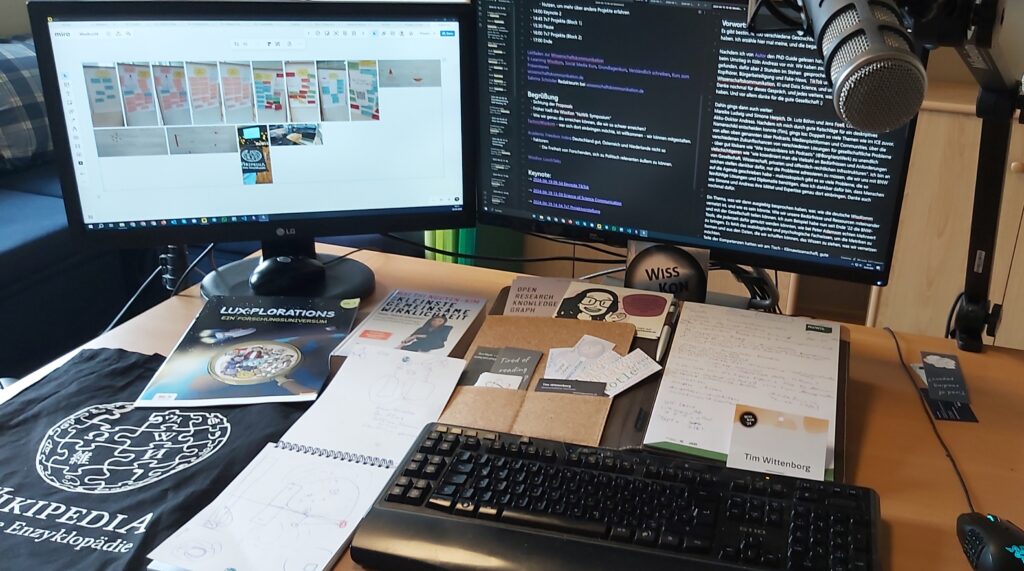Values are not easily formalized.
Let’s try anyway:
Sharing
Sharing knowledge creates knowledge.
FAIR
Access to Free Knowledge and FAIR data is essential to a democratic society.
CSCW
Collaborative computer supported work can bridge the widest gaps in human knowledge.
Curiosity
Embrace intellectual curiosity and critical thinking in the pursuit of truth and transparency.
Perspective
Value volunteers, cultivate collaboration, foster feedback and learn lessons.
Stay safe.
And stay critical.
To understand values, let’s quote Clyde Kluckhohn’s 1951 definition:
A value is a conception, explicit or implicit,
distinctive of an individual or characteristic of a group,
of the desirable which influences the selection from
available modes, means, and ends of action.
To summarize:
Ends
Means
Modes
Values
What goals motivate your actions?
What resources are you using for these actions?
What qualities are remarkable for your actions?
What conception of the desirable influences your selection from available modes, means and ends of actions?
Let’s talk about Goals and Means!
Because Modes are absolutely complicated.
Goals
- Make a common shared reality readily available.
- Build this reality upon scientific consensus.
- Continously and critically re-evaluate, re-assess and update this reality, from as many perspectives as possible.

We will not reach this goal alone.
But we have paved information roads,
thanks to societies like Wikimedia, the Open Knowledge Foundation, independent journalism, technological advancements and many people working daily towards free and open knowledge.
But we have history,
and generations of great pre-existing works on many different topics – from millenia of philosophy and politics, centuries of learnings in the humanities from sociology to psychology, to modern science based on thousands of experiments.
But we have company,
BorgNetzWerk is just a facet of the big picture – while we work on the digital library for OER and SciCom, others continue to fill it with content, provide insights, technology, …
But we have you,
and your journey awaits!

Means
- Free, open and collaboratively developed (software) tools.
- FAIR (Findable, Accessible, Interopreable, Reusable) knowledge from critically evaluated sources.
- Voluntarely, independently funds and contributions.
99 % of the resources we need are already available.
Free Software
Mediawiki, Wikidata, YouTube, GitHub, Python, Whisper, ORKG, OERSI, AV-Portal, …
Free Knowledge
6,781,315 Articles on Wikipedia, 108,475,084 entries at wikidata.
28 774 papers in the ORKG,
132 History of Philosophy Transcripts,
and limiteless possibilities of what we make from it.
Collaborative Infrastructure
Servers for the websites, hosting for the code, applications, documents, documentations, infrastructure to store intermediate and final products
Charitable funds
Pay where voluntary work meets it’s limits, like hosting fees, hardware, legal advice, etc.
Our values are based on References.
Understanding these explains the big picture.
References
- We exist to support the efforts of far greater giants.
- No single institution can cover all issues on all levels.
- To fill the gaps in our collective capabilities, we network individual solutions and build bridges.
We support Free Knowledge.
Empower and engage people around the world to collect and develop educational content under a free license or in the public domain, and to disseminate it effectively and globally.
– Mission of the Wikimedia Foundation
- Access to computers – and anything which might teach you something about the way the world really works – should be unlimited.
- All information should be free.
- Make public data available, protect private data.
– Ethics of the Chaos Computer Club (CCC)
Wikimedia Deutschland e.V. (WMDE)
WMDE, like BNW a charitable german non-profit organisation, is the first of many national branches of the Wikimedia Foundation. Without Wikipedia, the concept of BNW would have never emerged. Without their help – both as a pioneer, but also directly aiding in inqueries and project proposals, supporting WMDE and Wikimedia as a whole is one of the primary cornerstones of BNW. ( The Discord below is not officially by WMDE, but from the german Wikipedia. )
Open Research Knowledge Graph (ORKG)
The ORKG, build upon an EU ERC grant by the L3S, LUH & TIB Joint Lab project, is similarly special for the BNW. Like Wikipedia, Wikidata and MediaWiki provide invaluable building blocks of this shared reality, ORKG provides the closest approximation to representing scientific consensus.
And many, many others:
- Bündnis F5, including WMDE, the Open Knowledge Foundation DE, Algorithm Watch and others
- …
, even individuals and their life’s work:
- Mai Thi Nguyen-Kim’s MaiLab
- Alan Seawright’s and Jonathan Decker’s Cinema Therapy
- Philipp Dettmer’s kurzgesagt
- Peter Adamson’s History of Philosophy without any gaps
- Carl Sagan
- …
A few notes on Modes:
- scientific
- critical
- transparent
- differentiated
- educational
- understandable
- entertaining
- free
- findable
- accessible
- interoperable
- reusable
- collaborative
- iterative
- safe
- sustainable
BorgNetzWerk – Gesellschaft zur Vernetzung Freien Wissens e.V.
- We are a Germany based, non-profit charitable “Association for the Networking of Free Knowledge”.
- You can learn more about our transparent, charitable values.
- If you would like to support us, you can:

